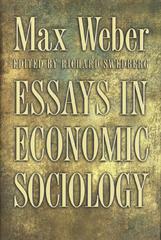Question
Im)perfect Competition: Unrealistic Economics or Useful Strategy Tool? There's an old, near-funny joke about economists that goes something like this: A physicist, a chemist and
Im)perfect Competition: Unrealistic Economics or Useful Strategy Tool?
There's an old, near-funny joke about economists that goes something like this:
A physicist, a chemist and an economist are stranded on a desert island, with no food to eat. A can of soup washes ashore, but it's sealed. So each professional ponders how to get it open...
"I've got it. Let's smash the can open with a rock," exclaims the physicist.
"No, no. The soup will splatter that way," says the chemist. "Let's build a fire and heat the can first."
"You're both wrong," retorts the economist. "Let's assume we have a can opener...."
The joke is corny at best. It may have even gone over your head. My apologies.
But the stereotypes in the joke are spot on, especially for the economist. One of the biggest gripes that people have with economists (and economics as a whole) is that the models that they build to represent the world often require unrealistic or even impossible assumptions in order to get results. What's the point of building models that do not accurately represent reality?
One of the most cited examples of wishful thinking in economics is the model of perfect competition which you have reviewed in this module. (If you have not done the readings yet, now might be a great time to start!). Perfect competition is known as an idealist representation of how economic markets distribute goods and services. In short, perfect competition is a market condition in which no market participants (buyers, sellers, etc.) are powerful enough to set the price of a homogeneous good or service.
1. What are the four basic assumptions of perfect competition? Explain in words what they imply for a perfectly competitive firm. Are these assumptions too broad for the companies that we see on an everyday basis?
2. A single firm in a perfectly competitive market is relatively small compared to the rest of the market. What does this mean? How "small" is "small"? What are peoples thoughts on this assumption and is this assumption realistic?
3. Why will profits and losses for firms in a perfectly competitive industry vanish in the long run? Is this part of the model realistic? Provide counter examples of companies/businesses who might be able to generate consistent profits.
Step by Step Solution
There are 3 Steps involved in it
Step: 1

Get Instant Access to Expert-Tailored Solutions
See step-by-step solutions with expert insights and AI powered tools for academic success
Step: 2

Step: 3

Ace Your Homework with AI
Get the answers you need in no time with our AI-driven, step-by-step assistance
Get Started


